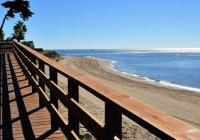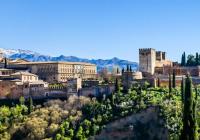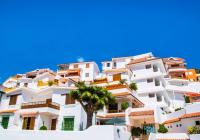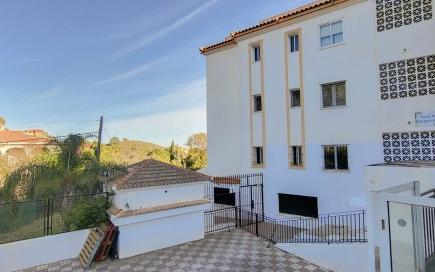
Spain is currently experiencing one of the worst droughts in its history. Whilst the lack of rain in Spain may be good news for the tourists hoping for a dry and sunny getaway, it is not good news for the people of Spain who are seeing the ground becoming increasingly scorched. Reservoirs on a national level are only at 43% of their capacity: This is 20 points lower than average.
To combat the impact of the dought in those regions worst effected, water restrictions are already in place in parts of the country. But with the dry spell set to continue, experts have suggested that many more regions in Spain will be subject to tight water restrictions before the end of the summer.
Here’s everything you need to know about what these restrictions may be and how they could impact you:
The Worst-Affected Areas
The two areas that have been worst-affected by the droughts are Catalonia and Andalusia. The inland reservoir basins in Catalonia are only at 26% capacity, whilst the Guadalquivir basin near Seville sits at just 25 percent capacity.
According to the Minister of Ecological Transition, Teresa Jorda, "50 liters of rain would need to fall every day for four months," to return Catalan reservoirs to normal levels. As a result, 6 million people living in 495 municipalities in Girona, Barcelona are being impacted by water restrictions. And as the country heads for its hottest- ever summer, this situation is only forecast to get worse.
So what kind of restrictions can you expect to face if you’re living in Spain this summer? Here are some of the restrictions that are currently being introduced:
A Ban On Filling Swimming Pools
The government in Catalonia has issued a ban on filling private pools from general water supplies, though community pools, municipal pools, and those in hotels and campsites are permitted.
In Andalusia, restrictions are in place on re-filling pools that don’t circulate their own water, whether they are public or private pools.
As the average private pool holds around 40,000 litres of water, this ban could become more widespread as the crisis grows. The water that it wasted when filling a pool could be better used for agricultural purposes, drinking and household use. This means if your Spanish property has its own pool, you may be unable to fill it.
Water Cuts
Whilst water cuts have not happened yet, local governments are preparing for these as a worst-case scenario. These would affect those living in Spain’s largest cities, and the general water supply to private homes would be turned off at certain times of the day. This means you would be restricted to the times you could shower, or clean your home. Homeowners will need to stock up on drinking water for when they need it.
Whilst some commentators feel this is a scare tactic, it could be put in place. In Barcelona, the Councilor for Climate Emergency of the Ciudad Condal Council, Eloi Badia has revealed that in extreme circumstances the council has planned for timed water cuts. And water consumption in the city has already been limited, however the limit is high (230 litres per person per day, when the average is 106 litres per day) meaning many people will not have noticed.
Reduced Street Cleaning
Spanish streets are well known for being clean, thanks to the street cleaners that soak and spray the streets at night to get rid of any grime or dog mess. But if the water shortage continues, this could either be stopped or reduced. Residents and tourists alike will notice that the streets they explore are dirtier and less hygienic as a result.
This is not just a theory, but has already been put in place. The amount of street cleaning has already been reduced in large towns and cities in both Catalonia and Andalusia.
Dry Parks and Gardens
Keeping parks and grass green in Spain often feels like an impossible task at the best of times. This is why many public parks focus on plants and trees rather than grass. But grass in Spain is set to suffer more than usual this summer, due to a reduction in the water available for irrigation.
In the Andalusian capital of Seville, watering both public and private gardens as well as private sports areas with drinking water has been prohibited since October. And in the Catalan capital of Barcelona, parks are already showing brown, straw-like grass because parks and gardens are not being watered as often as they should.
As and when the situation worsens, this restriction is likely to spread to other towns and cities across the country.
Agricultural Restrictions
Finally, its not just the use of water for parks and gardens that has been restricted but also the use of water for agricultural irrigation. This will have an impact on the cost and availability of certain locally-grown food products. In Catalonia, authorities have already imposed a 40 percent reduction in the amount of water that is used for agricultural purposes and a 15 percent reduction in the water available for industries.
The crops that are likely to be most affected are wheat, rye and barley, as well as fruits and vegetables.
Have you always dreamt of living in Spain or retiring to Spain? Whether you’re looking for a villa property in Benalmadena, golden mile properties in Marbella, a remote forest cabin, or bargain property ready for renovation in Andalucia, our local property experts are perfectly placed to turn your dreams into a reality. Why not get in touch to find out more about how we can help you.

 English
English Español
Español Deutsch
Deutsch Français
Français Svenska
Svenska Nederlands
Nederlands Italiano
Italiano Norsk
Norsk Русский
Русский

































